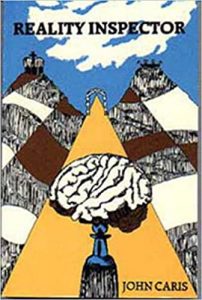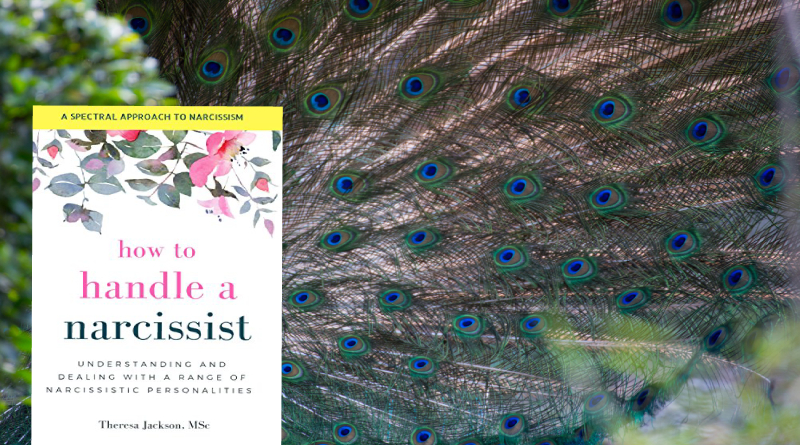Reality Inspector by John Caris Review and Summary
About The Book:

An early, perhaps the first, computer-hacking novel, A world championship chess match is the backdrop for this intriguing science fiction detective story. The main computer of the Federal Reserve is being tampered with by a sinister power, and the results could wreak havoc with the fiscal policy, causing the U.S. economy to fragment into pieces.
Actual chess games are used, and they act as launching pads for journeys into strange and challenging worlds. The mind has the power to project itself and to manipulate its environment. It has the power to shape external reality according to its inner reality. And when powerful minds become engaged in combat, a mighty and fierce struggle ensues.
The outcome of a chess game can be explained in several ways: chance blunders on one side or sharp playing on the other side. Or some kind of mind power influencing the players. It is a difficult idea to accept. The book includes 24 chess diagrams and an appendix with 17 master chess games.
Editorial Reviews:
” A delight and a challenge … very recommended.”
–New York Tribune
“A gifted writer.”
–Slidell Daily News
“A new age classic.”
–Better Lives for a Better World
About The Author:
John Caris Having been a Humanities and English college teacher for thirty-six years, I now manage Ye Olde Consciousness Shoppe which presents ideas about transforming consciousness and reaching a higher level of reality. The website has information about my three books: “Hermes Beckons”, a tale of alchemy and magic, is the most recent publication.
Review:
Appearance:
Did You Know: (Book Articles)
- Chapter 3 Copyright © 1982 John Caris
Five p.m. and government employees were beginning to leave the Mint. Perched upon a rocky base, the Mint appeared like a mountain fortress or temple, especially when viewed from Market Street.
But its entrance was at the top of the hill on Hermann Street–133 Hermann to be exact. John Ocean parked his car in front of the entrance. The first thing that he noticed when he approached the building was a large sign that stated “U.S. Government Property, No Trespassing.” The sign stood above a low, stone wall, which was broken by a sidewalk leading to the entrance. The sidewalk, however, had been barred by an immovable gate. Glancing to his right, he noticed a driveway and a guardhouse.
As he walked up to the guardhouse, a security guard stepped from the small building. After John told him that he had an appointment with Mr. Acorn, he waited while the guard phoned in a clearance check. When the guard waved approval, he walked to the entrance. The security system was certainly working, at least at this point.
A strange feeling caught John as he entered the Mint. Somewhere down below him was ZAC. Hidden from public eyes deep in its tomb, ZAC communicated with other computers throughout the U.S. and perhaps the world. Yet an outside power was now infiltrating ZAC; its closed system was leaking. He stood in the lobby and glanced about.
A security guard came up to him and, after verifying his identity, ushered him into the office of Mr. Acorn, who then escorted him to room 103 where he was given an ID. They took a special elevator, which had only one stop, down to the lowest level. Several people were waiting as the door opened; the day shift was leaving. John looked through the glass walls into ZAC’s living room. The night shift was already on the job; human figures seemed to flow past the glass walls.
Opposite the door was a security post; two guards watched not only the people behind the glass wall but also those who were entering or leaving. John put his ID into a slot in the turnstile and waited until the gate opened and the ID popped out. Mr. Acorn followed him into the room. The sounds and lights were impressive, at least for a first visit. But it was not quite like his image, which was perhaps too science fictionish. He immersed himself in this light-sound environment during Mr. Acorn’s instructive tour.
One part of his mind was filing away the data that Mr. Acorn was telling him, but his conscious part was experiencing the new location. What were the vibes? Where were the negative and positive places? He sensed the quality of turmoil around the computer printout and keyboard terminal. Oh, yes, Mr. Acorn was saying good night. And what were the names of the three attendants? Well, no worry; he would remember when necessary.
Taking a chair, he placed it in a spot that had good feelings. The room, about forty feet long, was rectangular. The chair was placed about ten feet from one end and halfway from each side. He sat down on the chair. Relaxing his body, he focused on some moving tapes ten feet away. Could he count the number of revolutions per second as da Vinci had counted the flutterings of a bird’s wing? His senses were focused on the room’s presence. He tasted it, smelled it, touched it.
A tangy and slightly pungent flavor, he thought. The turmoil around the printout and keyboard terminal was only the impression left by different attendants, like superimposing several voiceprints.
- Chapter 11 Copyright © 1982 John Caris
In the day’s mail, John had received the fourth clue. Or was it a threat? The envelope had contained only a copy of M.C. Escher’s lithograph Dragon. In what way the picture was a threat, John was uncertain. It was obviously a clue, though. He remembered the advice that ZAC had given him. He could add and divide. The dragon was a unity, yet it appeared to turn itself inside out. Escher was known for his visual tricks.
The clue was purely non-verbal; it had no written message to assist interpretation. He replayed the clues in his mind: a message about his death, a pawn passed away, a choice between a box and a bag, and now a dragon turning itself inside out. If this new clue were a threat, then the dragon symbolized potential death. But, he thought, that was a very roundabout way of threatening him. So far, his life had not been threatened directly.
There were only the anonymous mailings. His opponent only wanted him to be afraid, to succumb to fear; but, then, he was not close to a solution. True, he and ZAC were communicating quite well, yet the problem remained that ZAC was ignorant of the alien program’s presence until it was told, so John would have to rely on other means.
Perhaps, he could use the clues and find the thread leading back to his opponent. He looked through the window out onto his garden. The hollyhocks were about three feet tall; tiny buds were forming on the stems. After the ladybugs had arrived a week ago and had begun their feast, few aphids were now to be found. The ladybugs, though, had attracted many birds, which sat upon the telephone lines waiting for their chance. Nature was like that, he thought, an endless cycle, one creature feeding upon another. He puffed on his pipe, watching the fog drift down Ocean Avenue.
The alien program was feeding upon ZAC while his opponent was probably feasting off the increasing interest rate. Escher’s dragon also suggested an endless cycle. Both cycle and spiral were important symbols in many societies. Hindu religion was based upon the idea of an eternal cycle of life and death, and so Buddha came to show the way out of that cycle. Western science with its big bang theory assumed a cycle of expansion and contraction for the universe.
The spiral was a form frequently found in nature; it was based upon the mathematics of phi, the golden proportion. John laughed to himself: now I’m back to ZAC, but have I advanced to a higher level of understanding? Can I use these clues to construct a model of my opponent’s thinking? What kind of a mind would send me such threats? Understanding my opponent’s consciousness will help me, for then I will have a better idea about the design of the alien program and its recycling process.
The fog was gently spreading over his garden, and he was certain that the ladybugs were now hidden in their sleeping quarters. He looked at the clock on the desk; it was time to walk over to the Rainbow Inn for some food and for the evening’s chess game. Unlike ladybugs, human beings are often fed after sundown. Upon entering the Rainbow Inn, he looked about and saw Hank and Od at their usual table. John joined them after leaving with Helen his order of a glass of pinot noir and a Rainbow sandwich. Tonight was the tenth game of the match.
The champion had won the eighth game while the ninth was a draw, so he now led 3 to 2. Sam was playing white again tonight, but Mary was ready for him. She planned to show him how a queen could really be used. On the last move of game eight, Sam had offered her his queen, and she had resigned. As the championship match moved closer to the magic number of six wins, the excitement increased. The Inn was packed as always, but a new subtle tension permeated the audience.
John felt it as soon as he had entered the Inn. He noticed that Od was quieter than usual–quiet but not necessarily calm. Od’s sharp features seemed to radiate an electric charge. Even Hank’s normal calmness contained a new ingredient. What was it, he wondered? Perhaps, it had something to do with the strange winds that had blown into the Bay Area the past week. The TV screen showed Mary and Sam sitting across from each other. Then the champion moved a piece, and the game was underway.
He opened with P-K4 (e4), and she answered with P-K4 (e5). The first five moves were conventional enough, and then he devised a trap by taking her king pawn with his knight. But she skirted the trap by reinforcing her king file. On move twelve the champion created another potential trap; that was how Od saw it. Hank disagreed; he thought it was a weakness. He was saying, “Mary has a win if she can see it. Sam has made a monstrous hole at Q3 (d3).”
- Chapter 21 Copyright © 1982 John Caris
The late afternoon sun streamed through a pair of French doors in the living room of Dr. Glove’s small cottage. John, sitting in an oversized, leather chair, gave the tastefully decorated room a careful appraisal. He turned his sensitivity to the house’s presence; he hoped to discover new data about his opponent.
The feelings he sensed were those of contentedness and wealth. Mixed with them was the sharp flavor of a domineering ego that would brook no opposition. He felt forewarned and now knew that he was involved in the end game struggle. He looked across the room at Dr. Glove, who was relaxing on a chaise lounge.
The driver turned butler was serving wine. John filled his pipe with some tobacco and lit it. His opponent had the initiative, so he must wait for the proper moment. The glove was recounting the threats he had sent. The first, of course, was a statement of John’s condition. The passed pawn meant that the reality inspector was a pawn in someone’s game and that he would be sacrificed.
The box and bag–and here Glove chuckled ghoulishly–were two ways to bury a body, either in a coffin or in a bag. The two shots were direct and physical–no idleness there. The shots followed by the recorded voice escalated the situation to a breaking point. So Glove had taken the only alternative left–a private talk with the reality inspector. The portly man toasted his glass and took a sip.
“Now, Mr. Ocean, will you accept my offer. I can use your talents.” John puffed on his pipe while his mind calculated quickly: If I don’t accept, I’m dead. If I do accept, I still may be killed. How could Glove ever really trust me? “Well, Mr. Ocean?” Glove’s face was slowly becoming rigid. He remembered Escher’s dragon.
If Glove did not send it, then who did? In his mind’s eye, he saw Od’s smiling face. Of course, Od was the only one who would. The picture was meant as a helpful hint. He should be able to turn inside out, like the dragon. And after his experiences with Hank, he knew he could do that. “No. I don’t accept your offer,” he answered firmly.
Glove’s face hardened and burnt. Then it relaxed into a calm smile. He nodded to the bodyguard, who pulled out his gun. John knew that he was in trouble, so he fainted. His double left him; it flew across the room and smote Glove and the bodyguard on the forehead. When his double returned, John gained consciousness. He got up and walked over to the two bodies. They were still breathing. He picked up the handgun and retrieved the car keys from the bodyguard.
He left the house and walked over to the car. Something caught his attention. Stopping, he looked across the lawn to a line of trees. A golden moon was rising; it was shaped like Escher’s dragon. Fascinated by the strangeness, he focused on the image; then, throwing away the car keys and handgun, he stepped off into the golden light.



